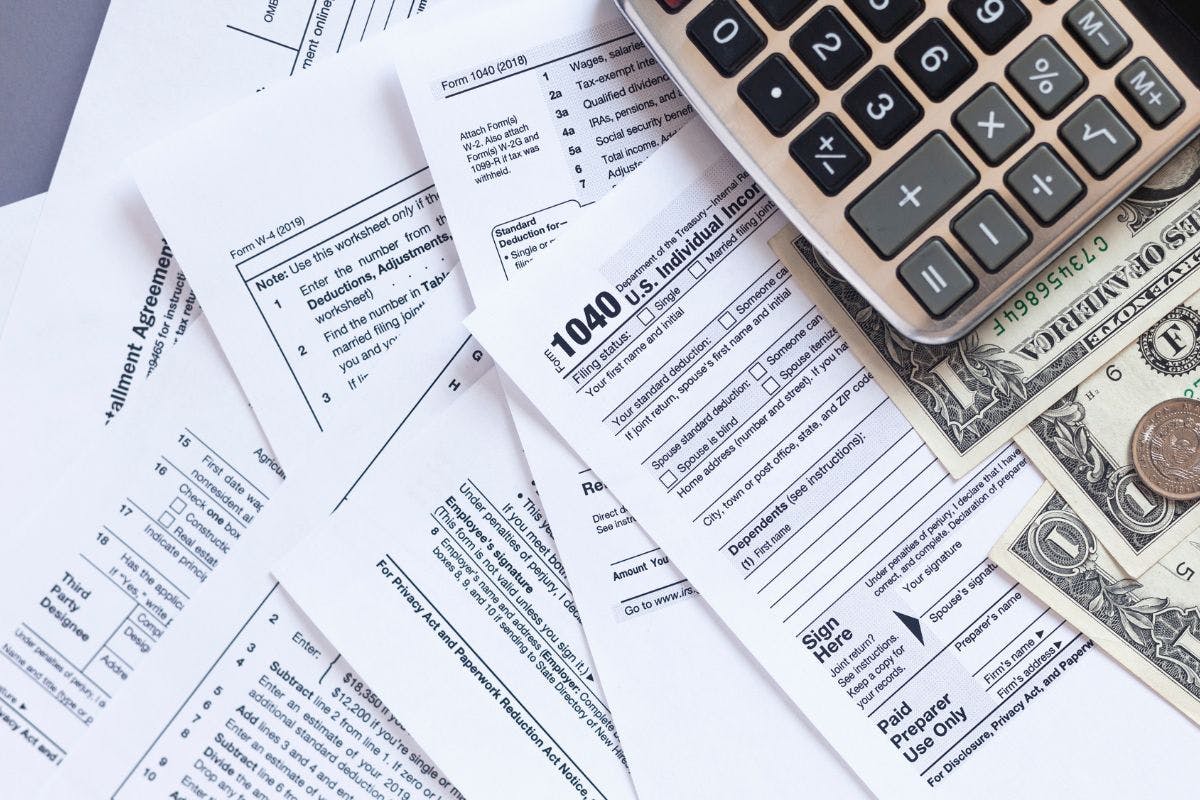Sales and Property Tax Exemptions for Solar Panels
Last edited
Author
Andrew Giermak
Solar and Electrification Writer and Editor
Editor
Andrew Blok
Electrification and Solar Writer and Editor

Home solar panels have a lot of benefits. One you may not think of is solar panels increasing your home’s value.
But, should you get handed increased property taxes because of the improvement to your property? Fortunately, many states have passed sales tax or property tax exemptions for residential solar panels. These exemptions can improve your savings and reduce your solar payback period. Here’s how these tax exemptions work and where they are in place.
See how much you can save by going solar with Palmetto
What Are Solar Property Tax Exemptions?
Should you be penalized for improving the value of your home or property? Adding solar panels almost always increases the property value of a home. Studies by the Berkeley National Laboratory and Zillow show property values and resale values increase with solar power systems. Zillow found homes with solar panels sold for 4.1% more than comparable homes.
Property tax exemptions help negate annual, longer-term costs with solar. When a state or locality has a property tax exemption for a solar system in place, your tax bill doesn’t include the added property value from your solar panels.
Property tax exemptions may be implemented on a state or local level. They may be full or partial, permanent or temporary, depending on the state.
In all, 34 states plus Puerto Rico and Washington, D.C., have property tax exemptions in effect, but they’re subject to change. For instance, in California, the property tax exemption on solar was recently extended to January 1, 2027.
What Are Solar Sales Tax Exemptions?
Normally, when you have labor or service done on your property, or simply buy products—in this case, panels, inverters, batteries, down to all the literal and figurative nuts and bolts—you pay sales tax on all of it. That’s not always the case with solar panels.
As of September 2024, 18 states have sales tax exemptions on buying, and the installation of, new residential and commercial solar power systems. The incentive reduces the upfront costs of going solar. The exemption typically applies to all solar equipment, such as batteries.
For example, if your state has a 5% sales tax on new consumer goods and you buy a system worth $20,000, you won’t pay the $1,000 sales tax. State sales taxes range from 2.9%-9.5%. That could represent an additional $580 to $1,900 on the $20,000 purchase.
What States Have Solar Property and Sales Tax Exemptions?
Here are the states and territories in the US that have some sort of property tax exemption as of September 2024.
| State | Property Tax Exemption? | State | Property Tax Exemption? |
|---|---|---|---|
| Alabama | No | Montana | Yes, for 10 years |
| Alaska | Locally only | Nebraska | No |
| Arizona | Yes | Nevada | No |
| Arkansas | No | New Hampshire | Locally only |
| California | Yes | New Jersey | Yes |
| Colorado | Yes | New Mexico | Yes |
| Connecticut | Yes | New York | Yes, for 15 years |
| DC | Yes | North Carolina | Yes |
| Delaware | No | North Dakota | Yes, for 5 years |
| Florida | Yes | Ohio | Locally only |
| Georgia | No | Oklahoma | No |
| Hawaii | Yes | Oregon | Yes |
| Idaho | No | Pennsylvania | No |
| Illinois | Yes | Puerto Rico | Yes |
| Indiana | Yes | Rhode Island | Yes |
| Iowa | Yes, for 5 years | South Carolina | No |
| Kansas | Yes, for 10 years | South Dakota | Yes, up to $50,000 or 70% of value added is exempt |
| Kentucky | No | Tennessee | Yes, 87.5% of value added is exempt |
| Louisiana | Yes | Texas | Yes |
| Maine | Yes | Utah | No |
| Maryland | Yes | Vermont | Yes, up to 50 kW |
| Massachusetts | Yes | Virginia | Yes, 80% exemption for 5 years, then 70% for 5 years, then 60% |
| Michigan | Yes | Washington | No |
| Minnesota | Yes | West Virginia | No |
| Mississippi | No | Wisconsin | Yes |
| Missouri | Yes | Wyoming | No |
Note: The details of tax exemptions may vary state to state and may have changed since this information was gathered. Ensure you know how your state's exemption works and consult your own legal and tax advisors if needed.
You can find more information, including state and local program details from resources such as the Solar Energy Industries Association and N.C. State University’s Database of State Incentives for Renewables and Efficiency.
See how much you can save by going solar with Palmetto
What’s the Difference Between Tax Exemptions and Other Incentives, Credits, and Rebates?
Tax exemptions are just one type of incentive regarding solar power and installing new systems or equipment. If you’re new to solar, trying to keep tax exemptions, tax credits, rebates, and other programs straight can be confusing.
With tax exemptions, you don’t pay taxes on what you typically would, whether that’s sales tax or the value solar panels add to your home. At the federal, state, and local levels there are more programs which may help the upfront affordability and the long-run finances of going solar.
The federal tax credit for new solar construction, including residential solar, is a 30% tax credit for anyone installing systems by the end of 2025. If you’re not already in the process of getting solar panels, it’s likely too late to get your solar panel system installed before the deadline. If you lease solar panels, the leasing company has longer to claim a lease-specific tax credit and pass savings on to you for longer.
Tax credits work to cover some of the tax bill you already owe, while a tax exemption keeps that tax bill from growing in the first place. A rebate, on the other hand, is money you receive back that’s unrelated to your tax bill.
There are many rebate programs at state and local levels. Some rebates are statewide incentives. Some are run by counties, regions, or power companies. You can search all incentives by state or zip code at NC State’s Clean Energy Technology Center’s site.
Two examples of rebate programs are:
- In Austin, Texas, Austin Energy gives its customers a $2,500 rebate for installing a solar panel system.
- In Lansing, Michigan, the Lansing Board of Water and Light gives customers a rebate up to $2,000 for a new solar system.
What Are Solar Renewable Energy Credits?
Certain states have a separate solar incentive, solar renewable energy credits (SRECs), and markets in which homeowners and business owners can sell them to power companies. The SREC market price is set by supply and demand. They’re typically worth more where power companies, governments, or other end users are mandated to meet solar or renewable energy levels on their own, or else buy credits to make up for it.
How Do I Maximize My Possible Solar Savings?
Making home solar power the best financial decision possible for you is partly about the upfront expenses of the system and installation, and partly about looking ahead for years to come. The full economic picture is also a combination of working with someone who will help you find the right system for your home and life. Getting the right answers about taxes and other incentives is an important part of the whole discussion and decision.
Start by getting a free solar savings estimate today.
See what solar can do for you:
Frequently Asked Questions
Does adding solar increase property value?
Adding solar energy to a home almost always adds property value and to the resale value. Studies show property values and resale values increase with solar power systems. In the vast majority of cases, this is one more way choosing residential solar is a sound financial decision which gets better in the long run.
How can I learn more about exemptions and other state and local programs?
Contacting Palmetto is one good answer. A reputable local solar installer should also be able to help. You can also search, including down to your zip code, in the Database of State Incentives for Renewables & Efficiency.
How long do I have to claim the federal solar tax credit?
The federal solar tax credit now expires on December 31, 2025. A new system must be installed and in service by December 31, 2025. People who lease solar systems can benefit from the tax credit for longer, but they won’t claim the credit for themselves.
Disclaimer: This content is for educational purposes only. Palmetto does not provide tax, legal, or accounting advice. Please consult your own tax, legal, and accounting advisors.


